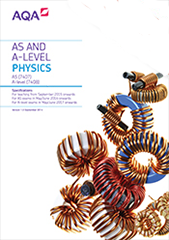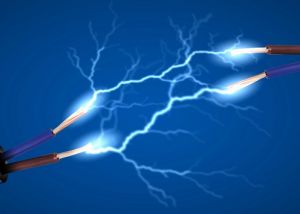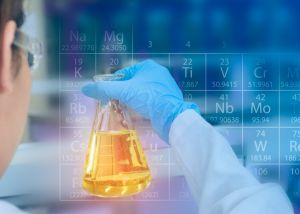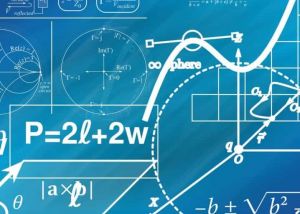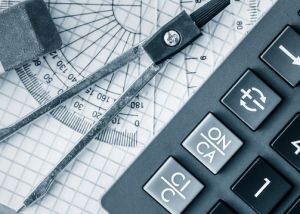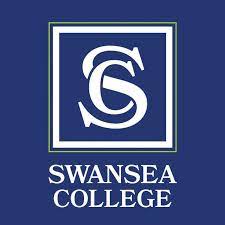AS/A Level Physics Course
Exam board: AQA
AS Level: 7407 – A Level: 7408
As you probably know from GCSE, Physics is the science of the physical world. There are hardly any new topics at A-level that you won’t have come across. Higher Level GCSE calculation topics are simply repeated, e.g. acceleration and kinetic/potential energy, voltage-current-resistance, while others e.g. heat energy electromagnetism and astronomy have calculation introduced at A-level, while only descriptive at GCSE. Maths is involved in A-level Physics but you do not need to do A-level Maths. You just need to be good at most higher-tier GCSE maths, formulae (using and re-arranging them), graphs e.g. y=mx+c, Pythagoras, sin cos and tan percentages and standard form.
In the second year of the course, full A Level, in module 5 you will study further mechanics such as circular motion and oscillations, heat energy, the kinetic molecule theory of gases, then astronomy-planet orbits, stars and the Big Bang theory of the Universe. Module 6 is electromagnetism, (motors generators and transformers), radioactivity particle physics and medical physics. Much of the exam material in the A-level exams will be AS content so you will revise all of this in the A-level course.
Physics is an essential subject to take at A-Level if you plan to take a Physics or Engineering course at university. It is also a useful A-Level to have if you plan to study Pharmacy, Optometry, Medicine, Veterinary Science, Biomedical Science, Chemistry or Earth Sciences.
Entry Requirements
To study A Level Physics you need a minimum of five GCSEs at grade 4-9 or C and above. You also require grade 5 or C + in Mathematics and Physics and one other science / 5 or above in Combined Science.
Curriculum
These qualifications are linear. Linear means that students will sit all the AS exams at the end of their AS course and all the A-level exams at the end of their A-level course.
Subject content
Core content
- 1 Measurements and their errors
- 2 Particles and radiation
- 3 Waves
- 4 Mechanics and materials
- 5 Electricity
- 6 Further mechanics and thermal physics
- 7 Fields and their consequences
- 8 Nuclear physics
Options
- 9 Astrophysics
- 10 Medical physics
- 11 Engineering physics
- 12 Turning points in physics
- 13 Electronics
AS Assessments

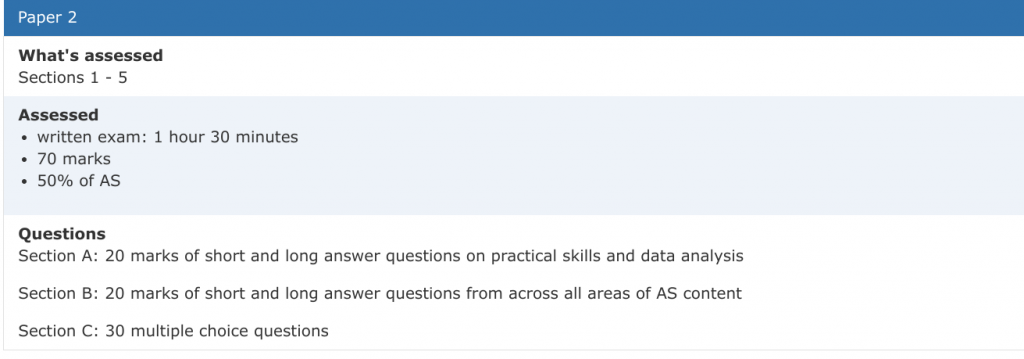
A level Assessments


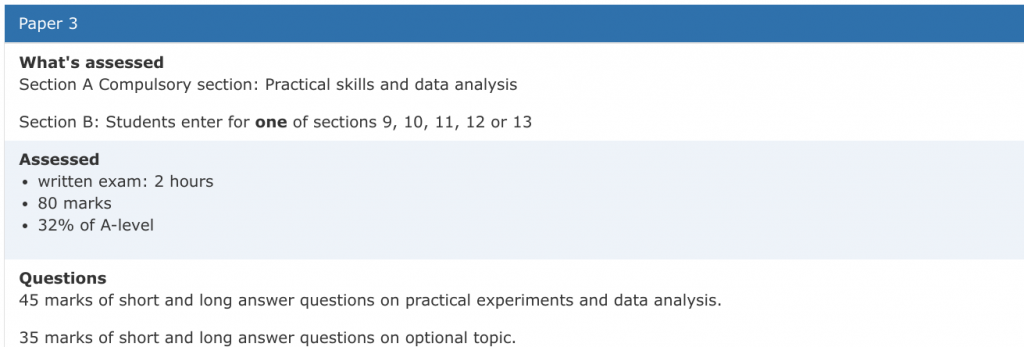
- In addition, there are 12 practical assessments required to complete this A level.
Access Arrangements
Access Arrangements allow candidates/learners with special educational needs, disabilities or temporary injuries to access the assessment without changing the demands of the assessment.
For example, readers, scribes and Braille question papers. In this way, Awarding Bodies will comply with the duty of the Equality Act 2010 to make ‘reasonable adjustments’.
We can arrange access arrangements and assess you with our special assessor. The deadline for application to the exam board is the February of the year the learner sits the exams.
To find out more about exam access arrangements click here
FAQs
We offer a range of study options, we are flexible, offer tutor support, and
interest-free payment plans make it easy to shape learning around your life.
We are registered with Estyn, our aims to give each student a complete education in which they achieve their academic potential and grow as an individual.
As well as studying with us, you can sit your exams with us too.
The regular A Level courses commence in September and an intake in January, these courses are designed to be taught in a classroom environment / online and follow a structured curriculum with a fixed schedule of classes, assessments and exams.
Distance Learning online courses can be started at any time throughout the year, and students can work at their own pace and in their own time,
You’ll sit the same A level exams at the same time as all the other students in the UK, and you’ll receive the same results, transcript and qualification.
You’re a level course will be accepted by colleges, universities and employers worldwide.
Yes! You can, if you are looking to improve your grade in your GCSEs, whilst studying A levels with us!
You can study A level courses through a range of study options; our blended learning which consists of online live classes and pre-recorded and in person teaching in class. The other option is only online live classes or Distance learning course.
Students normally study 4 AS subject in Year 12 and continue with the 3 subjects of their course in Year 2 to complete the A level.
If you are studying a distance learning course, we can assess you through the year through a range of assessments.
How will I be supported?
- We offer subject support tutorials every month
- 1:1 support from your subject tutor, online or by email
- 24/7 access to the your online learning platform
- Interactive online learning broken down into easy-to-follow units
- Practice tests and mock exams marked by your tutor
- Friendly student services team, so you’re never more than a message or phone call away from a helping hand
Distance Learning is a self-study course that you work through at your own pace using our Online course materials; a wide range of online resources, access to our Google classroom and tutor support when you need it.
Of course, you can study this course part time, making sure you have mentioned in your enrolment.
A level’s are usually a two year course, studying this in one year, would be an intensive course. You may be able to complete the course in one year as an intensive course; you need to show a strong understanding of the subject.
You have the option to join Year 13 and repeat the year and complete your course in one year.
We offer A levels – part time in the evenings to adult learners.
You have 2 options – Online live classes in the evening, Online Distance learning course.
You will have full tutor support in both options.
We offer support to all our students! We help you with your university options, personal statement writing, we provide a reference and your predicted grades.
We also help you prepare for you interviews.
We offer interest-free payment plans, you can pay monthly, termly or annually.
Yes of course! You can come in to our office and speak to our course advisors.
You can also book a Video call with us, email admin@swanseacollege.com to arrange.
Choose the subject you would like to study, add to courses, complete our application form and you can choose to pay online.
If you’d like to set up an interest-free payment plan, get in touch with our Student Advisors on 01792 535 000.
If you have any disabilities which you think might affect your studies or assessments, please let us know before you enrol so we can advise you on whether reasonable adjustments can be made to accommodate your needs.






